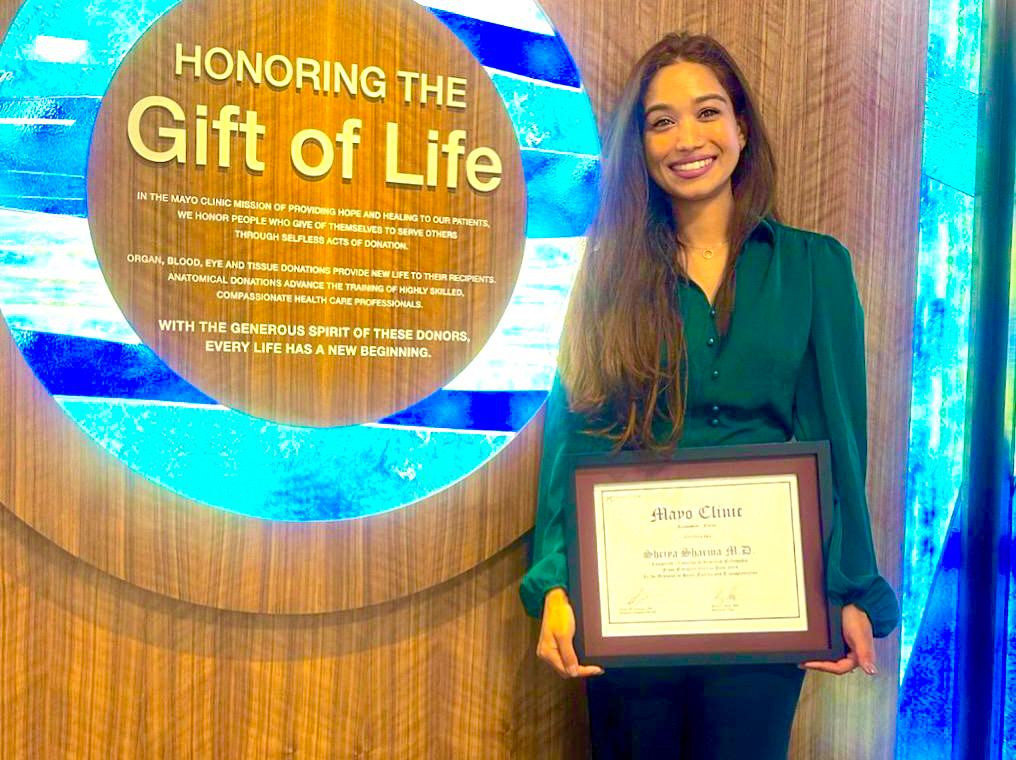

Kathmandu . Dr. Shriya Sharma has been emerged as 'A Rising Star at the Intersection of Compassion, Cardiac Innovation, and Critical Care' In a field that demands both brilliance and resilience, Dr. Shriya Sharma is quickly emerging asone of the most promising young physician-researchers of her generation.
“Sometimes all you can do is be there,” she says, recalling her early days as a young doctor in
Kathmandu, working through the chaos of the COVID-19 pandemic. “You can’t fix everything.
But you can still show up, hold someone’s hand, and let them know they’re not alone.”
Born and raised in Kathmandu, Nepal, Dr. Sharma completed her medical degree at the
Nepalese Army Institute of Health Sciences, graduating into a world reeling from a global
health crisis. The long shifts, limited resources, and overwhelming grief of that time didn’t just
harden her, they clarified her purpose. “It made me realize the kind of doctor I wanted to be,”
she reflects. “Someone who doesn’t just solve problems, but listens, adapts, and grows through
them.”
Recognizing her potential, the Mayo Clinic welcomed her as a research fellow in its renowned
Department of Heart Failure and Transplantation, an opportunity reserved for only the most
promising minds in medicine. There, she worked on critical studies involving mechanical
circulatory support, COVID-19 in transplant patients, and next-generation cardiac devices
including the Impella 5.5 with SmartAssist, a breakthrough heart pump that’s helping redefine
survival in heart failure. Unlike traditional support devices, the Impella 5.5 is a microaxial pump
surgically implanted to fully unload the left ventricle, reducing strain on the heart and allowing it
to rest and recover. Designed for extended use, it offers real-time monitoring through
SmartAssist technology and even enables patients to remain mobile during treatment, a key
factor in optimizing long-term recovery. For Dr. Sharma, contributing to this kind of innovation
was more than research; it was a glimpse into the future of how advanced technology can be
used to support and heal the human heart.

She has also been involved in clinical trials such as ACORAI, which explores innovative,
non-invasive technologies for heart failure monitoring, and TRIBE-HF, which uses AI-driven
tools to track biomarkers and help prevent hospital readmissions. “I’ve seen what happens
when technology and humanity come together,” she says. “That’s what excites me. That’s why
I’m here.”
Now a resident physician in anesthesiology and critical care, Dr. Sharma brings the same
intensity and clarity to each case. Her focus has narrowed around cardiac anesthesiology, a
field that perfectly blends her clinical precision with the research instincts she’s developed over
years.
“Heart transplant is where everything comes together,” she explains. “It’s science, skill, and soul
all in one place.”
Despite being early in her career, Dr. Sharma has already co-authored numerous research
papers, presented at major national and international conferences, and built a reputation as
someone to watch not just for her intellect, but for her humanity. She is a rising star in her field,
and it’s easy to see why. In a healthcare system that can sometimes feel clinical and rushed,
she slows down, pays attention, and brings a kind of grace even to the most technical settings.
“I want to become a physician-scientist,” she says, “because I believe the best medicine
comes from both research and the bedside.”
In an era that demands innovation, empathy, and courage in equal measure, Dr. Sharma is
exactly the kind of emerging leader medicine needs, one who brings not just expertise to her
field, but a lasting impact on every life she touches
© 2025 All right reserved to Nayasadak.com | Site By : Sobij